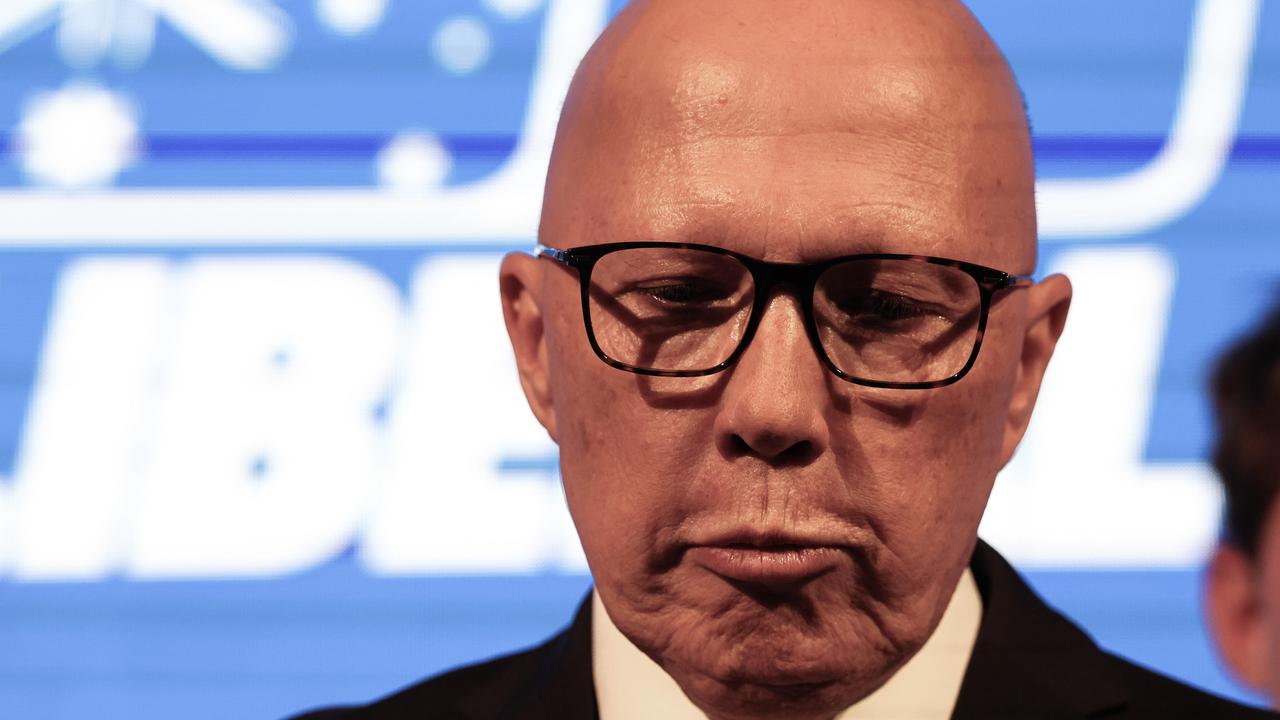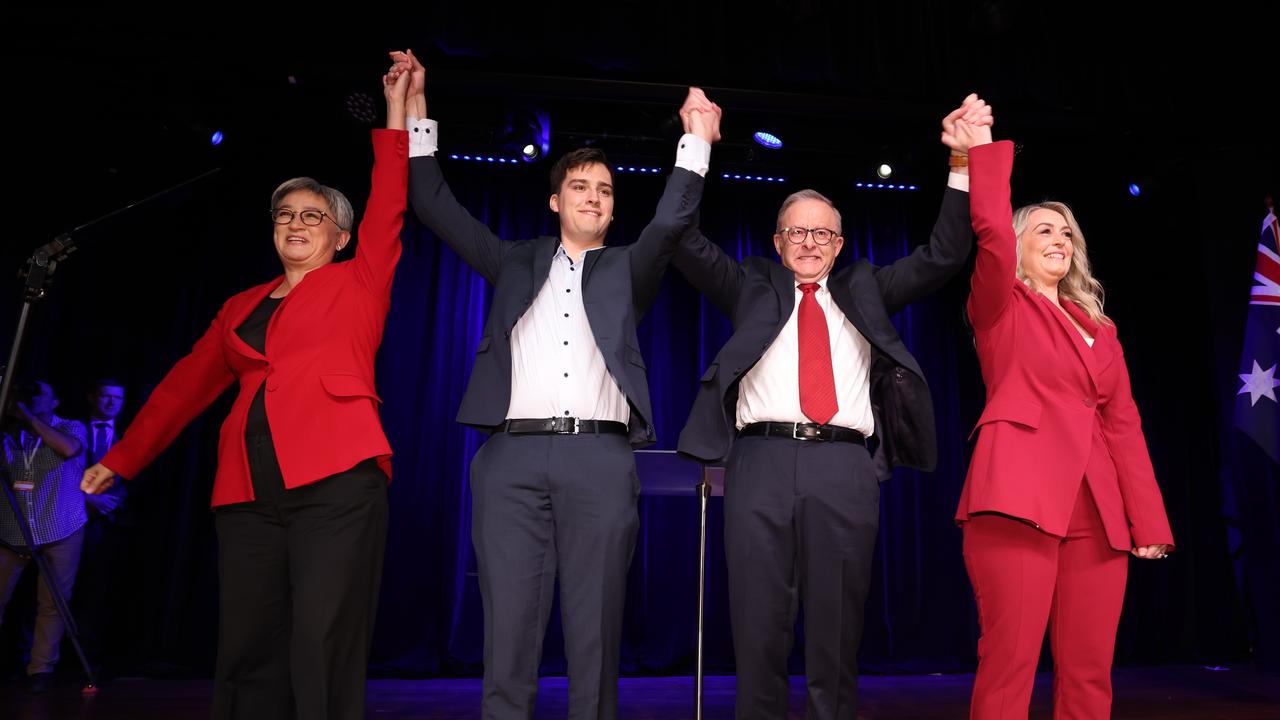Soldiers facing war crime claims find former comrade to front them in court
An ex-soldier turned lawyer to NRL stars representing Aussie soldiers facing possible war crimes charges says the process hasn’t been right from the start.
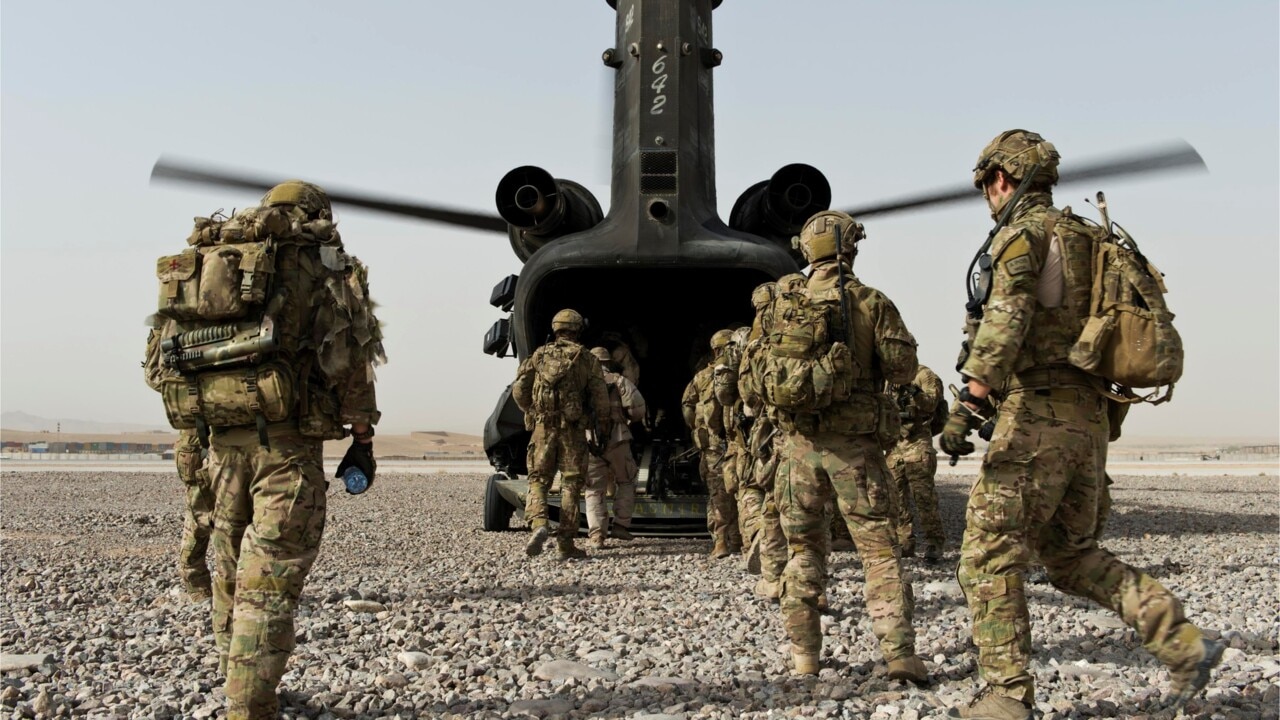
National
Don't miss out on the headlines from National. Followed categories will be added to My News.
Exclusive: Speaking with the extended families of some of the Special Forces soldiers now standing accused of war crimes, lawyer Dave Garratt struggles to explain the legalities of what the men face.
It is not because he doesn’t grasp the legal complexities or the nuances of battlefield rules of engagement; as a military veteran turned experienced criminal lawyer to many of the stars of the NRL, he’s got both those aspects firmly in hand.
And it’s not that the “facts” outlined by the Brereton Inquiry into alleged ADF war crimes in Afghanistan hadn’t been widely read as they made international headlines for much of the end of last year.
It’s more a case of how do you justify that their loved ones stand accused of the most heinous of crimes – killing of innocents, tantamount to murder – that see them publicly vilified and demonised and their careers and personal lives derailed but have yet to face a single charge.
There is yet to be a police investigation brief of evidence or no way to yet challenge the largely secret coded claims in a court.
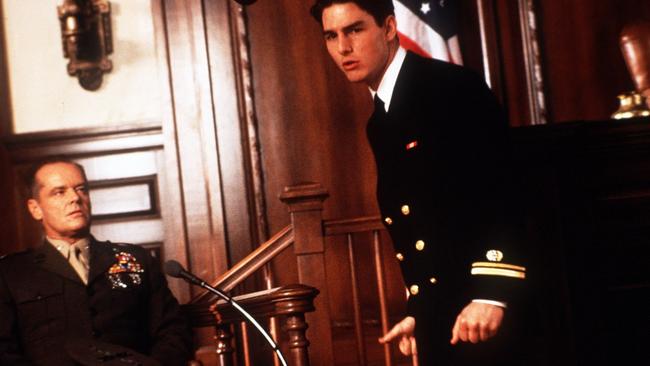
Then A Few Good Men comes to mind, the 1992 Academy Award nominated courtroom drama where two marines stand accused of a murder and their commanding officer actor Jack Nicholson famously spits “you can’t handle the truth”.
“That (movie) was their age group, and you always try and talk to the level of people you deal with and put it into language they are going to understand, so I talked a bit about that and even if it got to a jury stage, what it would be our counsel were looking for in picking a jury,” Garratt, who confirmed he was representing some of the accused, said on Friday.
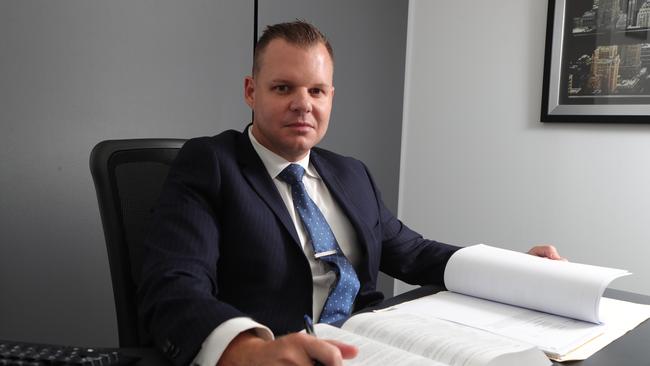
He’s been doing zooms with the families, sometimes up to 16 members at a time and across multiple states, to help them understand why their sons and grandsons are being called war criminals.
“It goes a lot further beyond the actual soldiers. It goes to their families … they need to be able to ask questions to talk. I didn’t care how ridiculous the question was or they had only just seen the movie A Few Good Men it’s just talking them through.
“I really hope it doesn’t get to that, to be able to prove this in a courtroom here will be a big hurdle for a prosecution I would imagine.”
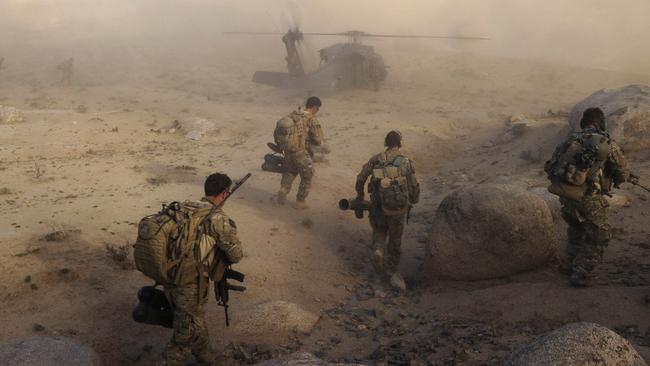
He is right in thinking this as it is understood a preliminary review by the Australian Federal Police of material gathered by the military investigators — about 36 incidents — has found one key witnesses giving evidence against the Australian soldiers was killed in battle as an enemy combatant.
Ironically his name was on a senior Taliban and al-Qaida high-value target kill or capture list, known as a Jpel or joint prioritised effects list used by the Coalition forces and Afghan Special Forces.
Some weight was given to his testimony, supposedly as an innocent farmer, despite him later identified as an active militant.
The credibility of at least three former Australian soldiers who had also given evidence to Brereton investigators against their comrades have also been questioned with new claims about their unethical battlefield operations and involvement in acts contrary to the Geneva Convention around Humanitarian Law of Armed Conflicts.
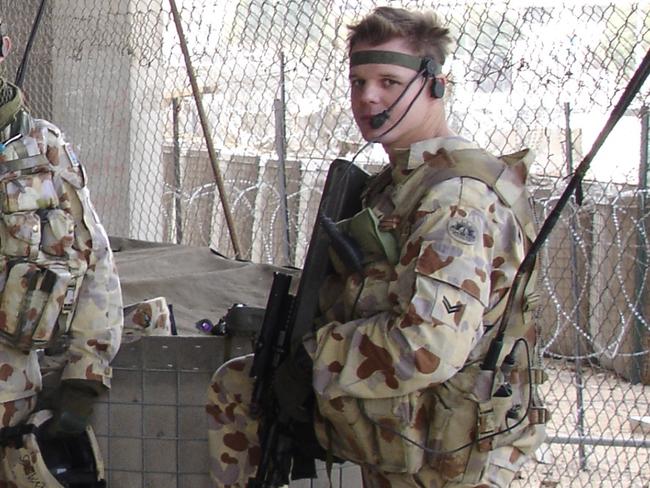
There are also question marks about the extent the commanding officers of the 25 implicated Special Forces soldiers turned a blind eye against some behavioural issues that now see some of the subordinates handed censure “show cause notices”.
Some witnesses since sacked by the ADF, could also be deemed hostile, as they are asked to give evidence for the ADF. And other claims have now been deemed hearsay and inadmissable, in one case handed along a chain of three people, none of whom actually witnessed anything.
There is a level of disquiet within the AFP about the “shit sandwich” they had been handed and the challenges, not least of which with their witnesses, then being against an enemy Taliban which is now the Afghanistan Government.
It goes some way to explaining why it was the AFP struggled with expressions of interest to join the investigation.
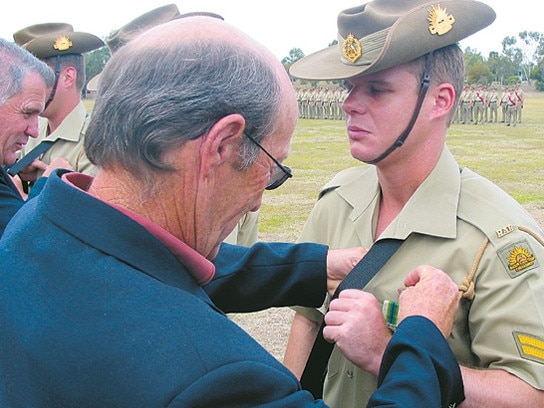
Garratt, through the Gold Coast-based Howden Saggers Lawyers where he is a partner, is representing an undisclosed number of soldiers and declined to discuss his clients’ cases directly.
But he confirmed all of those he now represented he had served with in an earlier incarnation as a soldier with 6 RAR before he turned to law and they moved on to join the SAS.
Like them though he said he knows what it is like to stare down a gun-toting suicide bomber and have to make a split decisions on the battlefield.
He did two tours of East Timor and in 2005 was on duty in Iraq when the Australian embassy in Baghdad was blown up with his unit sustaining injuries.
A few days later the recon sniper was again on duty and as team leader had to make the decision to shoot a suspected suicide bomber who would not adhere to their commands to stop.
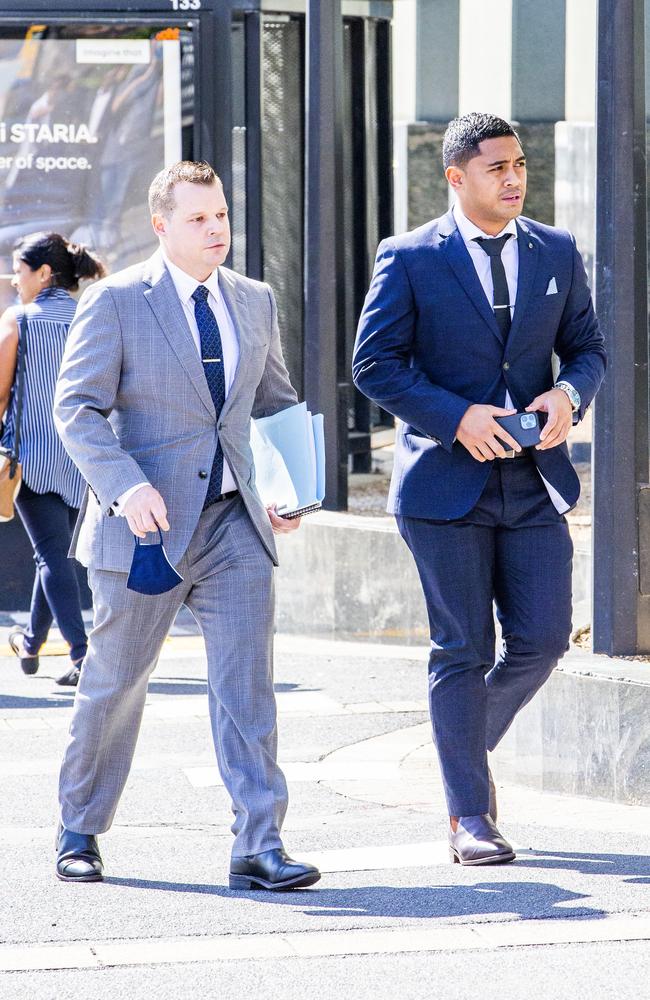
It was another shooting incident some months later that he was not involved in but saw colleagues hung out to dry by the chain of command that prompted him to pursue a legal career.
Then like now he says there is a presumption of guilt until proven innocent.
“The process is not right and hasn’t been from the start,” he said.
His clients had either discharged prior to the allegations or were drummed out of the military as medically unfit but now face some of the more serious of the allegations relating to some of the deaths of 39 alleged prisoners and civilians identified by Brereton.
Garratt, 41, has engaged well known Melbourne barrister David Brustman QC to represent them should a case against his clients proceed.
“For us it is a waiting game which is hard on the clients, hard on their families, that’s the nature of any criminal investigation after an incident or allegations, it’s the waiting process until they get a knock on the door,” Garratt, who had represented many from the NRL recently including Bronco Anthony Milford this week and previously some of his colleagues including victim of revenge porn Kotoni Staggs, Payne Haas and Brisbane coach Anthony Seibold, the victim of an ugly smear campaign.
“My guys have suffered, continue to suffer from this and there just really isn’t any clarity. It’s questionable whether it will get to court but in the meantime we wait and talk to them and their families.”
WORK CULTURE BEHIND VETS MENTAL HEALTH ISSUES
Mentally damaged ADF veterans and suicides stemmed less from battlefield trauma experiences than from Defence’s “weaponised” workplace culture in dealing with its troops, a study has found.
And the agency to “fix” military injustice and address perceived Defence maladministration – the Inspector General of the ADF (IGADF) – has been labelled as so tied to senior command its been rendered ineffective.
“(It) is said to be so corrupted and beholden to the senior command that it merely serves to exacerbate the abuse and allow the senior ADF leadership to hide behind a facade of ‘independent’ oversight and review,” report author and researcher Dr Kay Danes has concluded.

Her study, an addendum to a lengthier appraisal to be submitted to the Royal Commission into Defence and Veteran Suicide and based on first-hand interviews, aims squarely at Defence.
Dr Danes said the “failings” in the processes and administration of Veterans Affairs has long been recognised but the problems begin before ADF personnel leave the military.
“It is maladministration,” Dr Danes said in her scathing appraisal.
She said it was notable Defence Legal was quick to pursue personnel but even if individuals were exonerated, rarely were their superiors brought to account.
Rank rivalries see some actively seek to derail the careers of others and though exonerated, their careers are derailed and do not recover. They eventually leave the services with mental scars.
She cites the issue with a bar in Afghanistan the Fat Lady’s Arms almost a decade ago where several ADF personnel drank alcohol which resulted in administrative action against them now even though approval was sought and granted by the commanders of Joint Task Force 633 to consume alcohol.
“This has plunged these guys into despair and impacted them in a way that can never be underdone … some have lost key appointments on other allegations which were not investigations of fact,” Dr Danes said.
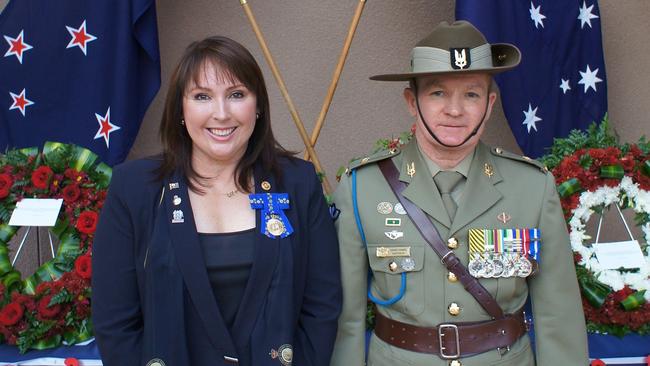
“I know so many defence personnel still serving, but looking to pull the pin, they can’t take it any more, there is just no justice.”
Due process and procedural fairness exist in civil society but the same standards do not apply in Defence which had a weaponised administration against its own people she concluded.
In a briefing note to the royal commission which begins in Brisbane next month, Defence said it was recognised there were issues and steps taken to address them.
Anticipating likely recommendations from the royal commission, Minister for Veterans’ Affairs and Defence Personnel Andrew Gee this week announced the appointment of more independent consultants to overhaul the department’s claims processing system.
Consultants McKinsey & Company will work with families who have lost loved ones to suicide to formulate recommendations that will overhaul the system to better serve veterans.
Mr Gee said the backlog of claims is unacceptably high and “this is not another review” but rather immediate change would be implemented.
“We can’t wait for the Royal Commission to get cracking on this crucial reform,” he said.



